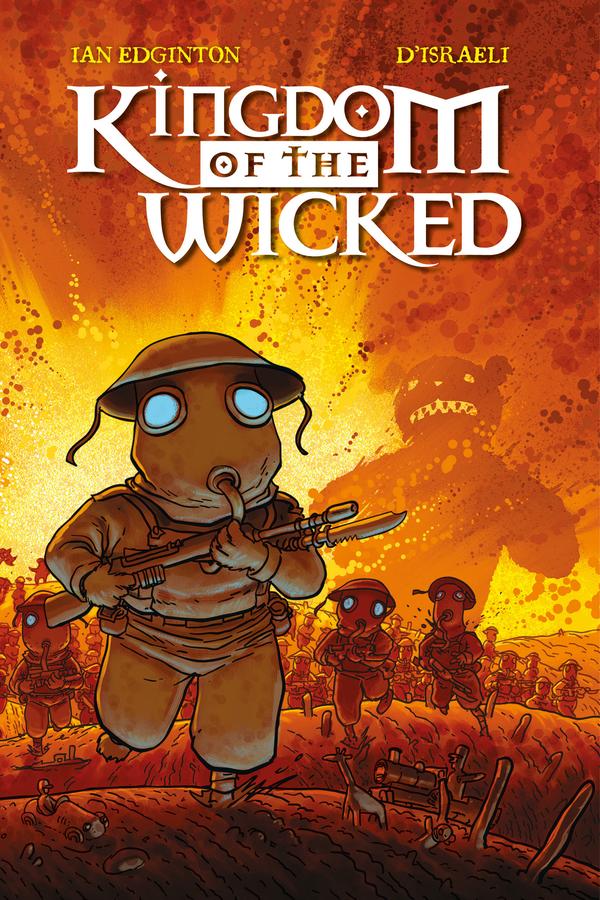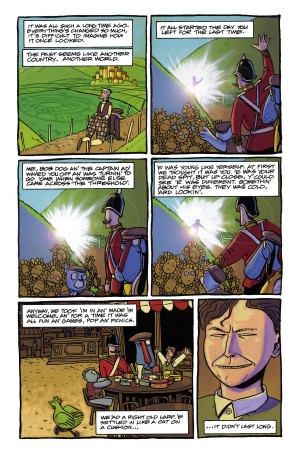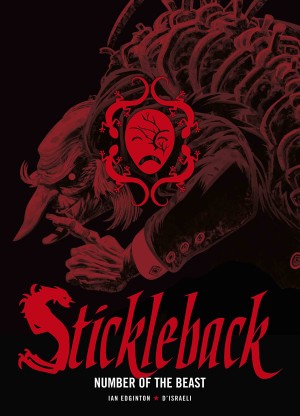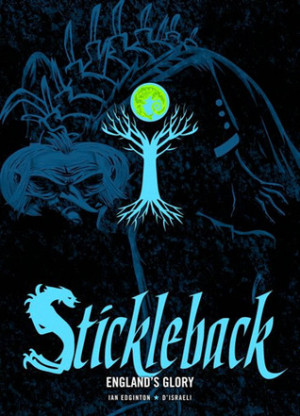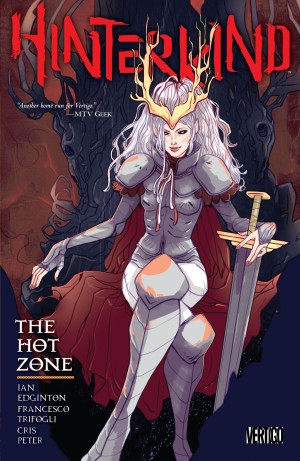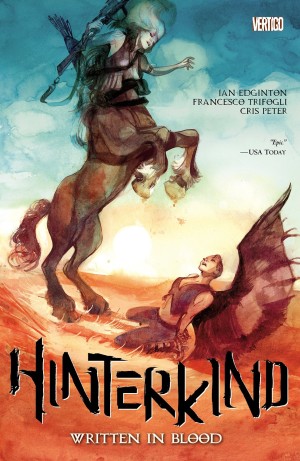Review by Jamie McNeil
“Between the here-and-now and the hereafter… between the pen and the page… there is Castrovalva, city of the Twelve Shires, where wonders are as free as air and impossibilities fall like spring rain.” This is the captivating opening prologue to Ian Edginton’s and D’Israeli’s beautiful original tale where the innocence of childhood meets the hard and bittersweet reality of life.
Chris Graham is a children’s author whose work has elevated him to cultural icon almost overnight with critical success, until he starts to experience the agonising headaches and blackouts he suffered as a child. During these blackouts he finds himself transported back to Castrovalva, the charming world he created as a bedridden boy to escape boredom, now ravaged by a war with the Great Dictator and the denizens of the Land Under The Bed. As Chris floats between this world he fashioned and the one he inhabits, he will face a number of revelations that will leave his life literally in the balance, trying to save Castrovalva before time runs out in both dimensions.
Kingdom of the Wicked has a deeply personal feel to it, Edgington apparently pouring little bits of himself into the story, the reality of growing up and losing our innocence through aging, loss, and regret all too real and familiar. Castrovalva is a wonderfully imaginative place with its rolling landscapes, enchanting villages, and inhabitants like the teddy-bear esque Chumblies or the Trollish Mugwomp. It’s a land of imagination that rivals Neverland, brought to life by D’israeli (nom de plume of Matt Brooker) with his vibrantly abstract depictions of characters and surroundings and incredible eye for detail. As enchanting as Castrovalva is when we see first see it (and later on in flashbacks to Chris’s adventures there), the devastation left by the war with The Great Dictator and his minions verges on the unspeakable. D’Israeli glides from reality to reality, across the past and present with enviable ease.
Edginton remarks that he has always loved working with D’Israeli because whatever he describes with his words, D’Israeli will replicate on paper with unnerving similarity. He also has a meticulous eye: as Chris visits his doctor observe the posters and notices that line the walls of surgeries parodied with tongue firmly in cheek.
It’s difficult to apply a genre definition to Kingdom of the Wicked. Aspects are as utterly charming as a children’s story, which segue into dark twists that readers of Dean Koontz and Stephen King might be more familiar with. The battlefield charges and muddy trenches strike a chord, not unlike the frighteningly realistic renderings of combat found in Charley’s War. In the midst of it all, we also find incredibly tender and moving scenes Chris and his wife share as his illness gradually worsens, the actuality of it all settling in.
Edginton claims this is the work he is most proud of, the jewel in his crown. With D’Israeli’s utterly enthralling artwork to accompany this unreservedly human story, it’s hard to disagree.
Kingdom of the Wicked has seen multiple editions from Caliber Comics, Dark Horse and Titan. The story and artwork (originally created in 1992) was altered and enhanced for the Dark Horse re-printing and then again for Titan. This is most notable with comparisons of Chris to J.K. Rowling (first published in 1997). The Titan Books edition is a glossy hard-cover that includes story sequences and notes by the creators.
